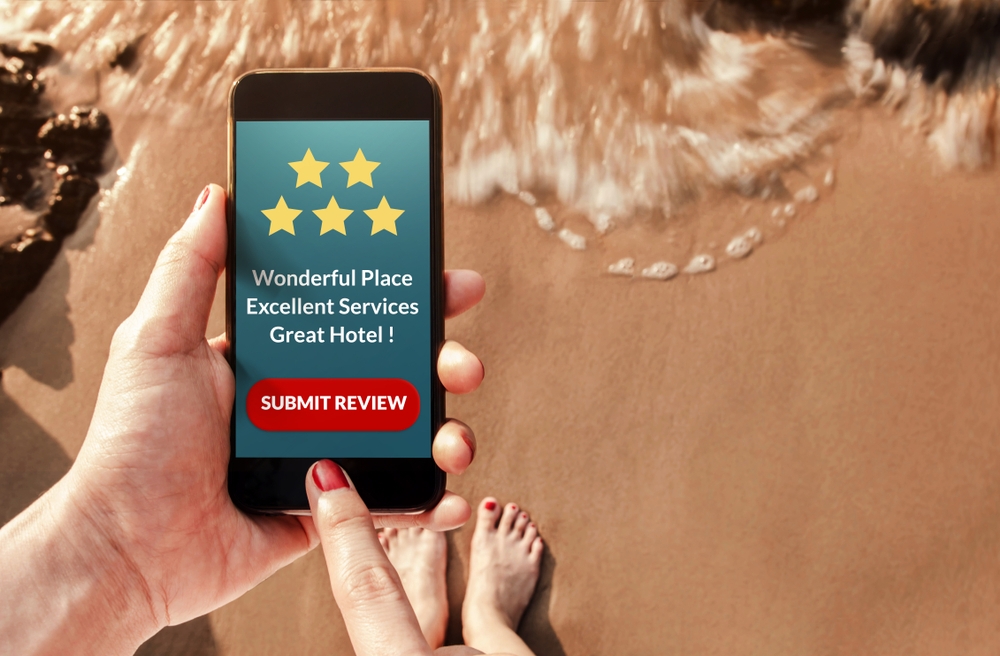Mastering Hospitality: Essential Steps on How to Run a Hotel Business Effectively
By Hamza Benhlima · 29. April 2024
Wondering how to run a successful hotel business?
This article offers actionable tips to navigate the hospitality scene. Find out how to pick the ideal location, attract and retain guests, and use technology to streamline operations.
Get ready to transform your hotel business with strategies fit for today’s competitive market!
Mastering Hospitality: Essential Insights
- Understand hotel industry trends and customer preferences for memorable guest experiences.
- Create a comprehensive business plan with location selection, target market analysis and a compelling unique value proposition (UVP).
- Apply smart technology, master revenue management strategies and deliver exceptional customer experiences to differentiate and optimise operations to gain a competitive advantage.
Understanding the Hotel Industry
 beautiful hotel view with swimming pool
beautiful hotel view with swimming pool
The hotel industry offers a wide range of services and facilities tailored to meet diverse customer needs and preferences.
This includes various types of hotels, each with its own marketing strategies, such as:
- Conventional hotels and motels
- Luxury resorts
- Wellness spas
- Boutique hotels
- Seaside B&Bs
However, the hotel industry isn’t static. It’s constantly evolving with changing consumer habits, advances in technology, and the emergence of new business models.
Staying informed about these dynamic industry trends is crucial for every hotel manager, hotel owner, or anyone who dreams of starting their own hotel business or improving an existing hotel business.
The hospitality industry isn’t just about accommodation; it’s about creating memorable experiences for guests.
Whether you run a boutique hotel, luxury resort or small property, understanding the intricacies and operations of the industry is your key to success. Hotel managers and owners are crucial to achieving this.
Building a Solid Foundation: Key Factors to Consider
Starting a hotel business requires more than just a passion for hospitality. It calls for an entrepreneurial spirit, a dedication to guest service, and adept management of diverse business operations.
But there’s more to it.
Let’s explore three crucial elements that lay the foundation for a thriving hotel business: choosing the right location, analysing the target market and establishing a UVP.
Location Selection
Location📍 is crucial for guest experiences and should match the purpose of their visit and the hotel’s concept.
A hotel situated in a central location attracts guests looking for city sightseeing, while tranquil spots appeal to those seeking relaxation.
But it’s not just about the view. Accessibility to airports and nearby amenities is equally essential for guest convenience.
Whether you’re starting a new hotel or expanding an existing one, choose a location that suits your target audience and complements your hotel’s identity.
Target Market Analysis
Understanding the specific needs and preferences of your target market is key🔑 to the success of your hotel business.
By personalising your hotel’s offerings to meet these needs and preferences, you ensure that your hotel remains attractive to its intended customer base.
This understanding is not just about offering what the customers want but also about creating a unique selling proposition (USP) that resonates with the target market and differentiates your hotel from direct competitors.
Investing in market research isn’t just a business strategy—it’s the lifeline that fuels your entire hotel business strategy.
Unique Value Proposition (UVP)
Creating a unique value proposition (UVP) is like composing an enchanting narrative that sets your hotel apart from the rest.
It’s the signature tune that makes your hotel resonate uniquely in guests’ minds.
Whether it’s an exclusive service, a unique setting, or a special guest experience, your UVP should be:
- Be unique enough to set your hotel apart
- Appeal to your target audience
- Be the reason guests choose your hotel over others
- Convince them to return
So, as you shape your business plan and marketing strategy, ensure that your UVP is at the forefront.
After all, a compelling UVP isn’t just a competitive advantage; it’s the essence of your hotel’s success.
A Comprehensive Business Plan
A business plan encompasses your goals, finance, and marketing, and serves as the foundation of your business.
Financial planning in a business plan involves setting realistic goals and understanding the financial status of the business, which is essential for budgeting costs and expansion.
Market analysis is essential to assess the hotel’s potential for success and growth📈.
The business plan should also include an executive summary that provides a brief overview of the company vision, mission and goals.
Whether you are a hotel manager or planning to start a hotel business, a comprehensive business plan is a must!
Assembling Your Dream Team
Running a successful hotel business is not a one-person show. It calls for a cohesive team of skilled individuals. So, assembling your dream team is a critical step in your journey.
Defining clear roles and requirements helps attract more qualified candidates, while talent assessments and structured interviews aid in selecting individuals with both practical abilities and a personality fit for the hotel’s team.
Providing comprehensive onboarding and orientation alongside regular communication training ensures new recruits are well-informed and competent in their roles.
Flexible work schedules not only attract diverse applicants but also aid in retaining employees, reducing turnover. Your team represents your hotel and directly influences its reputation.
Implementing Revenue Management Techniques
Mastering revenue management is crucial for running a successful hotel business. By implementing dynamic pricing and various pricing strategies, you can optimise pricing and improve profitability.
Dynamic pricing, where room rates are adjusted in real-time based on market factors, and various pricing strategies like value-added, discount, and length of stay pricing can enhance revenue maximisation.
Revenue management tools analyse market trends and consumer behaviour to help you make informed pricing decisions.
A solid revenue management strategy includes:
- Competitive analysis
- Forecasting
- Dynamic pricing
- Inventory management
- Market segmentation
So, whether you’re a hotel owner or a hotel manager, incorporating these techniques is essential for success in the hospitality industry.
Adopting Cutting-Edge Hotel Technology
 smart hotel with robot technology
smart hotel with robot technology
In today’s digital era, technology is a must-have. Adopting smart technology can streamline your operations and enhance the guest experience.
Property management systems are fully integrated, cloud-based systems that help to automate tasks such as reservations, and check-in/check-out processes.
Artificial intelligence and automation further streamline hotel functions, reducing manual work.
Investing in CRM tools allows for data analysis for strategic decision-making and optimization of overall business operations.
Whether you run a luxury hotel, a boutique property or a small business, embracing hotel technology is essential to stay competitive in the industry.
Excelling in Customer Experience
 hotel customer experience
hotel customer experience
Mastering the customer experience is like creating an unforgettable story for your guests. It’s about creating moments that they will cherish long after check-out.
Implementing a CRM system can boost🚀 guest loyalty by offering tailored services that recognize and remember their preferences.
Personal touches like welcome notes and special occasion celebrations can elevate their stay into a memorable experience.
Effective communication is crucial in the hospitality industry as it makes guests feel valued and builds loyalty.
Whether you manage or own a hotel, prioritising the customer experience is crucial to a thriving business.
Embracing Digital Marketing Strategies
 Digital Marketing Analytics
Digital Marketing Analytics
Embracing digital marketing strategies is not just an option; it’s a necessity. A strong online presence and a smart distribution strategy can make your hotel more visible and result in attracting more guests.
Managing a hotel’s online reputation includes:
- Staying on top of reviews and comments
- Monitoring operational efficiency and customer satisfaction
- Impacting brand awareness
- Increasing bookings
So, whether you’re running a boutique hotel or a luxury resort, embracing digital marketing strategies is a must to run a hotel business successfully.
Monitoring Key Performance Indicators (KPIs)
Monitoring Key Performance Indicators (KPIs) provides valuable insights into your hotel’s performance and informs strategic decisions.
Revenue per available room (RevPAR) is a crucial KPI that combines the average daily rate (ADR) with the occupancy rate to measure revenue.
The occupancy rate is a key🔑 performance indicator that tracks the percentage of available rooms that are occupied, providing insights into the hotel’s usage rates.
The Average Length of Stay (ALOS) of guests is also an important metric, which can inform pricing and marketing strategies.
Staying Ahead of the Competition
In the competitive world of hospitality, staying ahead means understanding industry trends, creating a unique brand identity and offering personalised experiences.
Keeping up with industry trends ensures your hotel remains competitive and maintains a positive reputation. Establishing a distinctive brand identity is what makes your hotel memorable to guests and gives you an edge in the market.
Providing personalised experiences enhances guest satisfaction and fosters positive word-of-mouth, helping you outshine the competition.
Whether you manage or own a hotel, staying ahead of the curve is essential for success in the industry.
Summary
Running a successful hotel business is an exciting journey filled with diverse customer needs, exceptional service and memorable experiences.
From understanding the diverse hospitality industry and laying a strong foundation to developing a thorough business plan, building a dream team and excelling in customer service, every step is critical to your hotel’s success!
Embrace the journey, seize every moment and create unforgettable experiences for your guests.
Frequently Asked Questions
How important is location when setting up a hotel?
The location of a hotel is crucial as it significantly impacts guests’ experiences and should match their reasons for visiting and the hotel’s theme.
What is a Unique Value Proposition?
Your hotel’s Unique Value Proposition (UVP) is a unique trait that distinguishes it from competitors and attracts your target customers.
How can technology enhance the guest experience?
By adopting smart hotel technology, you can streamline operations and enhance the guest experience through automated tasks like reservations and check-in/check-out processes.
What is the importance of monitoring KPIs in the hotel industry?
Monitoring KPIs in the hotel industry is important because it provides valuable insights into your hotel’s performance and informs strategic decisions.
How can a hotel stay ahead of the competition?
To stay ahead of the competition, a hotel should focus on understanding industry trends, building a unique brand, and providing personalised experiences for guests. This will help the hotel stand out in the market and attract more guests.

